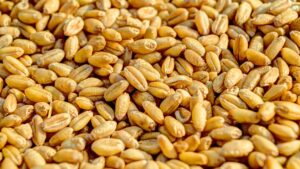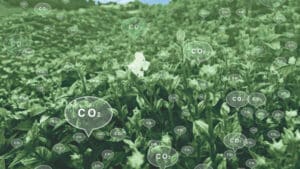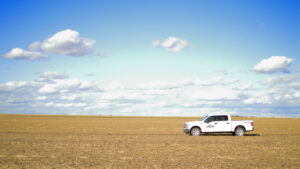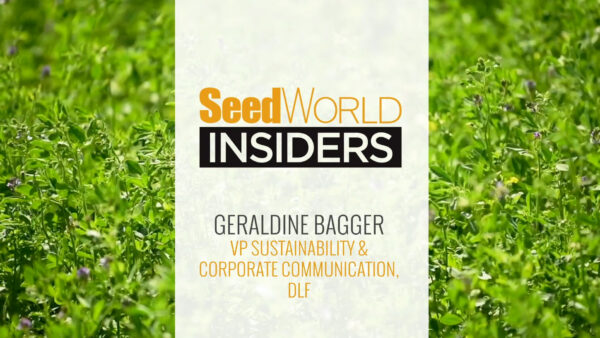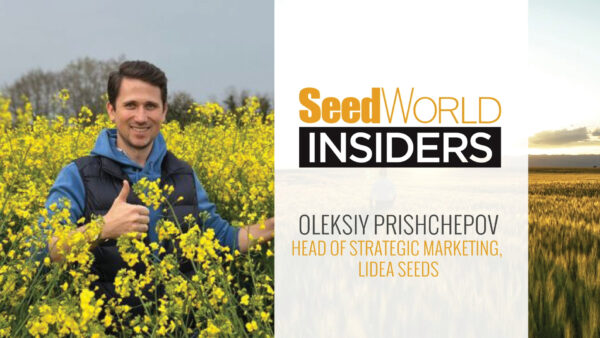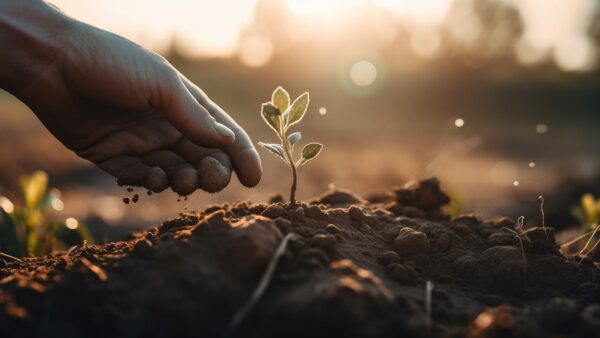Read part one.
Mission Zero
The company has a slogan called Mission Zero, aiming to have zero negative impact on the environment. “This includes the energy use in our eight seed treatment facilities in the world. Our facility in India is already energy positive,” says Bartels. One of the other activities is waste reduction. It is all part of the company beliefs, that also stretches into the products they supply to the market. “The end goal is regenerative agriculture. Can agriculture play a role in carbon sequestration? Can we store carbon dioxide in the soil? And what role can agriculture and horticulture play here?” he asks.
Bartels shares that for his company, Mission Zero is much wider than just climate or energy. “It is also about being a responsible employer — about fair wages, and no child labour. About employees spending time in community projects via our so called ‘1%-club’.”
Impact of the Pandemic
The company managed to stay open during the pandemic, because the seed sector and agriculture in general was classified as ‘essential’. Dobrowolska-Haywood shares that most of the production sites and the R&D departments could stay open. People that could, would work from home as much as possible. Eventually this created a bit of a gap, as people started missing the interaction with each other. But it also triggered a different way of working.
The good part was that people were still able to work, and do the experiments in the lab, but also continue to production. On the flip side, the company had to take care of the people’s mental health, and make sure they stay connected to each other. Many companies now have a much more flexible policy about home working. So has Incotec.

Close to the Market
Supply chain disruptions posed some major challenges but because of their local presence, the company’s processes proved to be sufficiently robust. “The strategy of our company has always been to produce close to the markets and it has facilities in all the continents of the world, in all the major agricultural economies. I think that has helped us during the pandemic,” says Bartels.
Investing in Digitalization
As a result of the pandemic, many companies invested heavily in digitalization. Something that was already underway at the company before this virus hit. “Our company already had strong IT skills, a completely digital order process and virtual meetings rooms. Due to the pandemic, we improved the quality of those tools, plus our people got more used to working with them,” says Bartels.
Not Only Vegetables
In 2023, the company will celebrate its 55th anniversary, and although it has its strong roots in vegetables and ornamentals, it has been branching out into other crop groups. For almost 30 years, the company has been treating seeds in the field crop sector. Dobrowolska-Haywood: “Actually the work in field crops started in India, and then spread all over the globe. Vegetable seeds are treated at our sites, with field crops we supply the treatment product, and the seed company treats the seeds themselves.”
Recently also true potato seed was initiated, in cooperation with Solynta. “The interesting part is that there are learnings back and forth,” says Bartels. “For example, we can implement knowledge from the vegetable crops into the field crops, and vice versa. And this is especially true on the processing side of things.”
One of the targets in the F2F strategy is to plant an additional 3 billion trees in the EU by 2030. And at Incotec, they are already seeing the first signs. “An interesting addition is that we are treating more tree seeds lately. This is definitely a growing sector. And more trees means more carbon sequestration, which is important in the fight against climate change. We have multiple tree seed projects in multiple sites,” says Bartels.
Ukraine
But climate change is not the only big challenge. The Russian invasion of the Ukraine is another one. “The war had a direct effect on our customers in both countries, with disruptions in the supply chains,” says Bartels. “Farmers had to stop their operations; warehouses were hit. It was surprising to see how resilient people were. By the second half of 2022, many people were able to resume their business, especially in Western Ukraine.”
The indirect effect was the increase in energy prices, especially for gas prices. “Many horticultural growers did not operate their greenhouses in mid-winter. And this had an impact on our company. Luckily the energy prices are decreasing, and more growers are restarting their business. But we are not sure how this will play out in next winter. The challenge for many growers is how to make horticulture even more energy efficient,” he adds.



